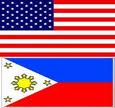Human Trafficking
UN Investigates Human Trafficking in Philippines

The United Nations is investigating human trafficking in the Philippines, an underreported story in the United States given the active or tacit involvement of many US citizens and businesses in the practice.
“The Government of the Philippines should strengthen implementation of measures to combat trafficking in persons,” said Joy Ngozi Ezeilo, the UN Special Rapporteur on Trafficking in Persons, during her official visit to the country in November 2012. Ezeilo added that data collected by anti-trafficking agencies are “confusing and conflicting from one agency to another.”
She recommended that the Philippine government create specialized human trafficking courts to fast-track the country’s huge backlog of cases. “The Philippines is undoubtedly a source country for human trafficking with its citizens being trafficked in different parts of the world, mainly owing to the socio-economic conditions prevailing in different parts of the country,” Ezeilo said.
The results of Ezeilo’s investigation will be submitted to the United Nations Human Rights Council in June 2013.
The US government extols its anti-trafficking efforts in the Philippines, a close US ally in Asia, but sugarcoats the reality of the problem. For example, grants of $300,000 here, $500,000 there, hardly justify the US Embassy’s claim that “the battle against human trafficking is a high priority for the US government and the American people.”
Establishment US news coverage on human trafficking in the Philippines regurgitates statistics without providing a deeper analysis of the issue. There is no shortage of “sex slaves” headlines, but other forms of human trafficking, and the US industries that benefit from them, barely get a mention. Moreover, The New York Times praises feeble, zero-cost anti-trafficking efforts in the American hospitality industry, for example telling employees to look for unusually large numbers of condoms in wastebaskets.
References
“US Grants Philippines $.3 M to Combat Trafficking.” TraffickingProject.org. June 1, 2008. Accessed Dec. 3, 2012. http://www.traffickingproject.org/2008/06/us-grants-philippines-3-m-to-combat.html
Mohn, Tanya. “The Travel Industry Takes On Human Trafficking.” The New York Times. Nov. 8, 2012. http://www.nytimes.com/2012/11/09/giving/the-travel-industry-takes-on-human-trafficking.html?pagewanted=all
Office of the High Commissioner of Human Rights. “Trafficking in Persons in the Philippines.” Nov. 14, 2012. http://www.scoop.co.nz/stories/WO1211/S00204/trafficking-in-persons-in-the-philippines.htm
Student Researcher: Scott McDonough, Frostburg State University
Faculty Evaluator: Andy Duncan, Frostburg State University


